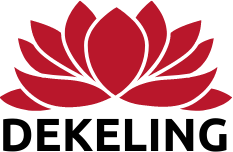Up until about the last two decades we’ve seen very few prominent women teachers.
I think it’s due to a lack of education. Societies in the East, in India and in Tibet, and basically wherever Buddhism grew, were very patriarchal. A patriarchal society limits opportunities for women to study and be independent.
But you have to study, you have to be independent to manifest any kind of realization or understanding. You’ll be wrong to imagine that bodhisattvas just drop down from the skies and automatically arise as women and men or whatever. A lot of hard work is involved in the sense of learning, practicing, and being in retreat. Being independent to experience and accomplish. Women often didn’t get that opportunity, so there were limited numbers.
Fortunately, that seems to be changing. I really think opportunities for education have now really increased for women, and they’re becoming very competitive and learned.
While there are textual sources which don’t make any disparaging remarks or have any kind of a biased outlook towards women, it is actually quite the reverse within the mahamudra and the dzogchen traditions. But you need to view them as literary works of scholars and masters who have their own opinions because they were brought up in that kind of society.
There’s a lot of, “May I not be born as a woman.” It’s a very common statement in some Buddhist prayers, which really shocks people who come to Buddhism thinking it’s all about one truth and unbiased compassion, selflessness, and egolessness. And then they find such discrimination. Women find it very jarring, very disrespectful and discouraging. But you have to understand that these are literary works and interpretations of an individual’s perspective.
I never allowed that to be any kind of a blockage. I have gone to my teachers, especially my father, complaining about it saying, “Look, this is what you all have been writing about women, and how is this not contradictory to just the other day’s teachings that you have been giving?”
And Rinpoche would say that ultimately Dharma is view, and you have to examine it, think about it, you have to mull it over in your own mind, experience it, and then make a decision based upon your own understanding, rather than what somebody is trying to tell you. This advice has been tremendously helpful for me. These days I take it in a relaxed attitude or with some humor, and see it as an individual’s interpretation, rather than necessarily the Buddha’s words.
~ Mindrolling Jetsün Khandro Rinpoche

